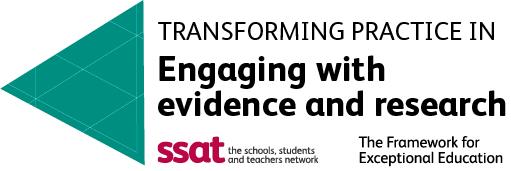- Home
- Students
- House Information
House Information
Pastoral System
The pastoral system at Stratford School Academy is based on our House System. Each House is comprised of pupils from each year group which enables the older students to act as supportive mentors to the younger ones who have yet to tackle the challenges that their peers have successfully overcome. Tutors, with help from the older pupils, induct new pupils (Year 7), advise on options (Year 9) and guide pupils when moving on to further education (Year 11).
| House | Head of House | Building | Tie Stripe Colour |
|---|---|---|---|
| A – Euler | Mr D. Lowe | Grosvenor Road | Red |
| B – Berners-Lee | Mr D. Kinowski | Grosvenor Road | Grey |
| C – Curie | Ms N. Khan | Grosvenor Road | Yellow |
| D – Crick | Ms R. Sharma | Upton Lane | Orange |
| E – Noether | Mr J. Tozer | Upton Lane | Green |
| F – Hawking | Mr B. Javid | Upton Lane | Blue |
Leonhard Euler
Born on April 15th 1707, in Basel, Switzerland, Leonhard Euler was one of math’s most pioneering thinkers, establishing a career as an academy scholar and contributing greatly to the fields of geometry, trigonometry and calculus, among many others. He released hundreds of articles and publications during his lifetime, and continued to publish after losing his sight. He died on September 18th, 1783.
Euler’s eyesight worsened throughout his mathematical career. In 1738, three years after suffering from fever, he almost became blind in his right eye. However, his eye condition appeared to have little effect on his productivity, he continued to implement mental calculation skills and had exceptional memory. Euler began to produce one mathematical paper every week in the year 1775.
One of the biggest qualities which Euler house strives to develop in its pupils is perseverance. As you can see from Leonhard Euler, even after being rendered as almost totally blind in his right eye, he decided to continue and used his condition as an advantage. He ended up making that year (1775) one of his most productive years producing one mathematical paper every week on average. Euler house believes that no matter what life throws at you, try and make the best out of the situation- just like our role model.
Timothy Berners-Lee
Timothy John Berners Lee was born on 8th June 1955 and grew up in London. He studied Physics at Oxford University and became a software engineer. In 1980, while working at CERN, the European Particle Physics Laboratory in Geneva, he first described the concept of a global system that would allow researchers anywhere to share information.
In 1984, Berners- Lee worked to create a system for sharing and distributing information not just within a company, but globally. He named it, the World Wide Web; something which has now become instrumental in business, education and everyday life.
It is for this reason that our house is named after him. His idea has allowed learning to take on a whole new level, with a vast amount of information at our fingertips, for us to access anywhere, anytime 24/7. In Berners-Lee house we aim to be pioneers, thinking outside of the box and striving to make a better world.
Marie Curie
Marie Skłodowska Curie was a French-Polish scientist born in 1867. In her lifetime, she did major research into radioactivity, culminating in the discovery of two radioactive elements: Polonium (named after her native country) and Radium. Her achievements led to her being awarded the Nobel Prize for Physics in 1903 and the Nobel Prize for Chemistry in 1911. She was the first person to win two Nobel Prizes, is one of only two people to have won Nobel Prizes in different fields, and remains the only woman to have won two Nobel Prizes.
Living and working in the late 19th and early 20th centuries, Marie Curie overcame huge barriers in order to achieve great things in both Chemistry and Physics, the most challenging of which was her gender. To be such an active and successful scientist as a woman in that era was an incredible achievement and to be recognised by the Nobel Foundation is a testament to her determination, ambition, passion and intellect.
As a house team, we place enormous value on understanding that facing and overcoming challenges are what makes us successful. We look to make sure that all of our students understand that failure is a positive occurrence, as it is only through failure that we discover our mistakes and can therefore learn from them.
Francis Crick
Francis Crick won a Nobel Prize for the discovery of the human DNA structure in 1962. Crick had an attraction towards science from a very early age, and preferred gaining answers independently through scientific research. At the young age of 21, Francis Crick had gained a Bachelor of Science degree in physics from the University College London.
Crick was not only a highly intelligent scientist but also an author. He had written famous books such as ‘of molecules and men.’
Crick had to pause his PhD because of war, but that didn’t stop him from later completing his PhD and in his second year he was even awarded the Carey Foster Research Prize. Crick house work to achieve their goals in life, despite the obstacles they may face.
Amalie Emmy Noether
Amalie Emmy Noether was an influential German mathematician born in 1882 who made innovative contributions to abstract algebra and physics. She is often described as the most important woman in mathematics; one of many astonishing facts that inspire the students of Noether house. We nurture in our students the similar self-belief required for them to overcome barriers and promote the strong work-ethic integral to achieving one’s dreams, even in the face of adversity or difficult circumstances.
Our students’ life stories may not necessarily be a linear one and the house’s dedicated tutors work tirelessly to prepare their tutees for life’s unexpected twists and turns- to embrace these as exciting challenges that will be overcome with resilience and perseverance.
Stephen Hawking
Stephen Hawking is a world renowned scientist whose work has hugely increased the understanding of black holes. He was responsible for many hugely popular scientific books that helped us push science into the mainstream.
When he was 21 he was diagnosed with ALS: a disease which he was told, would kill him within the next 5 years. Some 40 years later, although wheelchair bound he continues to write, give lectures and remains a professor at Cambridge University where he held the title of Lucasian Professor of Mathematics until 2009.
Professor Hawking has become one of the most credible, influential scientific minds in the world and has an undeniably strong will to persevere to reach success in life. Hawking said ‘Intelligence is the ability to adapt to change” and as Hawking house we work to embrace change and look for how we can change for the better.
Head of House
Houses are run by a House team, which is led by a Head of House. The House teams are responsible for ensuring good attendance, punctuality, uniform and organising the extra help and guidance that some students inevitably need. They also organise the thoughts for the day (we call them the Daily Reflections) that we run during tutor time.
Mr D Lowe – Head of Euler Mr D Kinowski – Head of Berners Lee Ms N Khan - Head of Curie Ms R Sharma - Head of Crick Mr J Tozer – Head of Noether Ms B Javid - Head of Hawking














